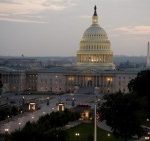In the wake of a failed effort to repeal the Durbin Amendment this spring, many banks, networks, lobbying groups, and other repeal advocates are vowing to try again, as are the Congressmen who pushed the original repeal effort. But that doesn’t mean smaller banks, at least, are totally united behind that cause.
Community bankers Digital Transactions talked to for a story on the legacy of the Durbin Amendment are split on the issue of repeal, while merchants, as might be expected, solidly favor keeping the amendment as is. If anything, some argue its rules and interchange restrictions should be extended to credit cards.
In brief, the amendment, which became law in 2010 as part of the Dodd-Frank Act, caps debit card interchange for issuers with $10 billion or more in assets. It also mandates that merchants have a choice in routing debit transactions, and to enforce that choice it requires that issuers offer at least two unrelated networks with their cards.

In general, the executives Digital Transactions talked to for its story, which will appear in the magazine’s July issue, either favor total repeal or, at most, partial repeal. Those in this latter camp aren’t so sure ditching the network-choice provision is advisable. This provision, these executives argue, has helped merchants contain their costs and has also helped their banks by bolstering smaller PIN-debit networks competing with debit networks from the national Visa Inc. and Mastercard Inc. systems.
“Shazam believes, and I concur, that if the routing choice goes away, most or all of the smaller debit networks go away as well,” argues Robert Steen, chairman of Bridge Community Bank, Mechanicsville, Iowa. Bridge is a longstanding member of the 41-year-old Shazam Inc. network, which is based in Johnston, Iowa, and recognized as a pioneer in debit card routing and shared ATM networking.
Indeed, preserving the network-choice requirement is just the start for smaller banks, Steen says. “We need to save the routing-choice requirement and then figure out how to actually give small merchants and smaller [financial institutions] an actual choice for least-cost routing,” he adds.
Officials at other banks point to the economic consequences of repealing Durbin, at least for their institutions. For some, the network-choice provision is a sunk cost now that more than five years have passed since it took effect in October 2011. “Two unaffiliated networks, we’ve already absorbed that into our cost structure,” says John Schulte, chief information officer at Mechanicsville Bank of Michigan, Grand Rapids. “It would cost me money to take away a network now.”
But some executives, feeling squeezed by declining interchange income despite being exempt from the pricing caps, are strongly in favor of repeal. For them, the routing choice, combined with the negotiating clout of larger merchants, results in lower income as merchants send transactions to lower-priced systems. When it comes to the Durbin Amendment, “We’d prefer to see the whole thing done away with,” says Brad Rose, vice president at The State Bank, La Junta, Colo.
A debit transaction from a big merchant, for which the bank once collected between 16 and 19 cents, now yields a dime, Rose says, resulting in a loss for the bank. These transactions, he adds, account for the “bulk” of the bank’s traffic. And now, he says, transactions from other retailers are starting to yield less, as well. As a result, he laments, the Durbin Amendment “has enforced a race to the bottom.”







